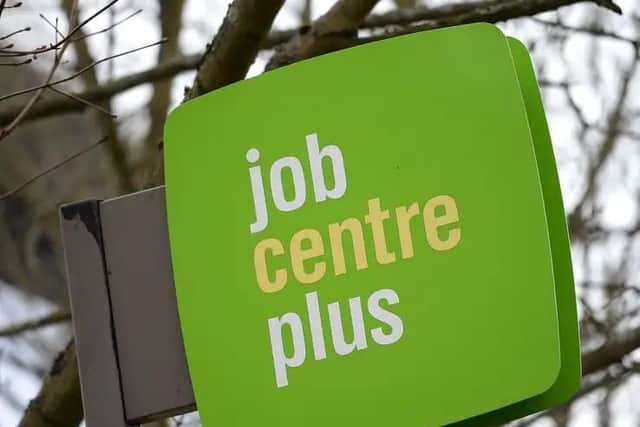Cost of living crisis: more than four in five Nottinghamshire households in work
and live on Freeview channel 276
Last year saw the first national rise in the number of working-age households without an employed adult since 2010, before rising food and energy prices led to soaring inflation this year.
The Institute for Public Policy Research said the rise in workless households is “concerning”, especially during the rising cost of living.
Advertisement
Hide AdAdvertisement
Hide AdOffice for National Statistics figures show 231,025 Nottinghamshire households containing one or more occupants aged between 16 and 64 had at least one person in employment in 2021.


It meant 83.6 per cent of households were classed as either working, where all working-age adults are in employment, or mixed, with at least one working and one workless adult – down from 86.7 per cent the year before.
In Mansfield, 28,023 households had at least one person in employment in 2021 – 80.5 per cent, up from 79.4 per cent the year before.
In Ashfield, the figure was 38,296, or 85 per cent, down from 85.4 per cent, while in Bassetlaw, it was 31,481 households, 81.7 per cent, down from 89.1 per cent.
Advertisement
Hide AdAdvertisement
Hide AdIn Broxtowe, 31,192 households had at least one person in employment in 2021 – 85.3 per cent, down from 88.3 per cent the year before.Across the UK, the number of workless households rose for the first time since 2010 last year from 13.7 per cent to 14.1 per cent.
In Nottinghamshire, just 45,236 households, 16.4 per cent, had no working-age occupants in employment last year.
Rachel Statham, IPPR associate director for work and welfare state, said: “It’s seriously concerning to see a rise in workless households as our cost-of-living crisis deepens this winter, and it’s clear urgent action is needed to keep people in the workforce as living costs soar."
She also highlighted the high rate of sickness and ill health as a reason for the uptick in worklessness.
Advertisement
Hide AdAdvertisement
Hide AdAcross the UK, 34 per cent of workless households said they did not work because of sickness or disability.
This was the most common reason given in every region across the country – in the East Midlands, it was 32 per cent.
A further 19 per cent said it was because they had retired early, while 11 per cent were out of work due to being unemployed.
Ms Statham said: “We need to see urgent action from our Government to drive down waiting lists, improve access to employability services for people struggling with health problems, and strengthen social security for those unable to work due to ill health or disability, or this trend will result in significant social and economic costs over the long term.”
Advertisement
Hide AdAdvertisement
Hide AdThe Department for Work and Pensions said it has supported 1.3 million people with disabilities into work in the last five years.
A spokesman said: “All disabled people deserve the same opportunities to start, stay and succeed in the workplace as everyone else.”
